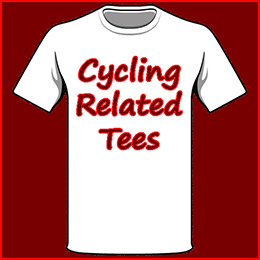The Bulwer-Lytton Fiction Contest
 Tue, August 11, 2015
Tue, August 11, 2015  Since 1983 the English Department of the San Jose State University has sponsored the annual Bulwer-Lytton Fiction Contest.
Since 1983 the English Department of the San Jose State University has sponsored the annual Bulwer-Lytton Fiction Contest.
A whimsical literary competition that challenges entrants to compose the worst possible opening sentence to an imaginary novel.
Named after the Victorian English writer Edward George Bulwer-Lytton, who penned a novel with the opening line, “It was a dark and stormy night.” Later immortalized by Snoopy, the beloved Schultz “Peanuts” cartoon character.
Bulwer-Lytton is also credited with coining the now famous quotations, “The pen is mightier than the sword,” “The great unwashed,” and “The pursuit of the almighty dollar.”
During the more than thirty years the Bulwer-Lytton contest has been in existence it has grown in popularity to attract entries numbering in the thousands, from contestants worldwide. Prestigious newspapers in the past have written articles about it, and requoted the winning entries.
The number of entries per person is unrestricted making the total entries received far greater than the number of people. So I was thrilled when the two entries I submitted were recognized. I won First Prize in the “Children’s Literature” sub-section, with the following entry:
“The doctors all agreed the inside of Charlie’s intestinal tract looked like some dark, dank subway system in a decaying inner city, blackened polyps hanging from every corner like tiny ticking terrorist time bombs, waiting to burst forth in cancerous activity; however, to Timmy the Tapeworm this was home.”
Furthermore my second entry received a “Dishonorable Mention,” (Which is actually good.) in the Crime/Detective” sub-section:
“The janitor’s body lay just inside the door, a small puncture wound below his right ear made with a long thin screwdriver, the kind electricians use and can often be found in the bargain bin at the hardware store and come with a pair of cheap wire cutters that you never use because they won’t cut wire worth a damn and at best will only put a small indent in the wire so you can at least bend it back and forth until it breaks.”
These winning entries bring no monetary gain, but never-the-less it is a huge deal for me. It is recognition for my creative endeavors. Although it is extremely satisfying to have people admire my past work, namely bicycle frames I built, it is my “Past” work. I have moved on.
I was recently called out on my use of the term “ex framebuilder,” and it was suggested I should drop the “ex.” It is part of my title now, it has been the heading of this blog since its inception almost ten years ago. I haven’t built a frame since 1993.
When I walked from the bike business, I decided to direct my efforts in other creative directions, namely writing and songwriting. A difficult field to reach any level of recognition because there are way more writers and songwriters than framebuilders.
It is one thing to take metal and paint and create a functional object of great beauty, but to choose words and assemble them in the correct order, for me is the greatest form of creativity. It is truly creating something out of nothing. Songwriting takes this concept a step further, I am adding random musical notes to the equation.
So this is why this whimsical, nonsense, competition means so much to me. It is a level of recognition for what I do now. One cannot dwell on things they have done in the past, no matter how worthwhile. I like to think that my greatest creative achievements are yet to come.
To Share click "Share Article" below
 Dave Moulton | Comments Off |
Dave Moulton | Comments Off |  Art,
Art,  Fiction and Poetry,
Fiction and Poetry,  Humor
Humor 


























It is news when cyclists die, news when they don’t
In a country with a population of three hundred and fifty million people, less than two cyclists die on roads in the US each day. A pretty miniscule number, so rare these deaths are always reported by local media, to be picked up elsewhere and the stories re-run across the nation.
On any given day some 12 pedestrians will die, and around 90 people driving cars will be killed somewhere across America. For the most part these fatalities will go unreported. This lop-sided reporting of cycling deaths, gives an erroneous impression that cycling is far more dangerous than it really is.
So it pissed me off, irked me somewhat this morning to read an article in the New York Times with the headline, “No riders killed in the first 5 months of the bike share program.”
When Citi Bike was introduced earlier this year it was widely speculated that that this bike share program would be a “Blood Bath,” putting inexperienced cyclists among New York’s crazy drivers.
Now people are surprised it didn’t turn out that way, even though similar bike share programs introduced in other large cities around the world, didn’t see huge increases in cycling fatalities either.
John Pucher, a professor of urban planning and public policy at Rutgers University and a so called cycling advocate, said last year that he expected, “At least a doubling and possibly even a tripling in injuries and fatalities among cyclists and pedestrians during the first year of the bike share program.” What a prick, strange thing for a cycling advocate to say.
I have written about John Purcher before. He uses fear tactics to push his own crazy fucking ideas, agenda for urban planning. This includes separating motor vehicles from cyclists and pedestrians. A utopian notion that will never happen in large cities like New York, the cost would be prohibitive. And to what end? Just so motorists can drive like fucking lunatics, as fast as they wish, and continue to slaughter each other.
The real story in this NY Times article, and one that should have made the headline, is almost lost three quarters of the way in. It states that traffic fatalities are down 30% since 2001. This is a huge amount of lives saved across the board, cyclists, pedestrians, and motorists.
This bears out a truth that dick-wads like Purcher don’t get, real cycling advocates understand. The more cyclists added to a city’s traffic mix, the safer it becomes for everyone. For a start, every bicycle represents one less car, so less conjestion.
The closer you get to there being as many bikes on the streets as cars, everyone is forced to drive slower, and more important, pay attention. So even adding inexperienced riders on Citi Bikes to the mix is a good thing. It makes it safer for everyone.
Finally, New York City Comptroller, John C. Liu, has been pushing to add bike helmets to Citi Bikes. Making helmets mandatory would probably be the kiss of death for any bike share program. It makes a simple program very complicated.
As it stands a person in NYC, has the choice of walking from A to B, or renting a bike and getting there a lot easier and quicker. Of course there is also the option of taxi or subway.
But let’s say the person decides to get from A to B under their own steam. If he/she decides to walk, they could just as likely be hit by a car while crossing the street. However, no one suggests pedestrians should wear helmets.
Helmets are designed to offer protection should the cyclist fall from the bike and strike their head. Mr. Liu states at the end of this article, that Citi Bike users ride slow, very slow, and ultra-slow. So falling from one of the very heavy bicycles is a remote possibility.
Meanwhile, Mr. Pucher is covering his ass, hedging his bets when he said in an interview last week that while he regretted predicting a doubling or tripling in bike deaths, he would be “really surprised” if future data did not reveal at least a modest increase in injuries.
I will be expecting a follow up story in the New York Times at some time or other, when it will be reported that a whole bunch of cyclists have either been killed, or possibly not.